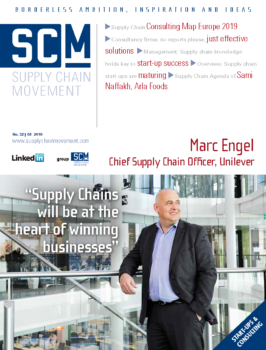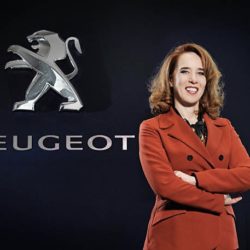Sami Naffakh, Arla: “Key tool is a line centric organisation with focus on shop floor”

Sami Naffakh joined Arla Foods in January 2018 at a critical moment for the dairy cooperative. With 25% of its business in the UK, and a portfolio affected by a disrupted dairy market, the organisation had to act quickly. It is now undergoing a thorough and all-enveloping transformation program that includes putting skills and empowerment back on the shop floor and investing in proven technologies.
By Helen Armstrong
Naffakh has worked for some 25 years in FMCG and has held leadership roles within businesses such as Unilever, Reckitt Benckiser, Danone and Estee Lauder. While drawing on these experiences, the farmer-owned dairy cooperative with some 11,200 farmers in seven countries, has a unique impact on strategy: Arla has to deal with the 14 billion litres of milk produced by its farmers annually regardless of price or demand.
With a strong understanding of both consumers and the major trends, Naffakh’s aim is to secure competitive operations that can quickly adapt to evolving consumer trends by engaging at all levels within the organisation.
What is your responsibility regarding the supply chain?
“As Executive Vice President for Supply Chain I head a multinational organisation of 13,000 people. I’m responsible for the end-to-end supply chain of Arla Foods and provide services to our independently run subsidiary Arla Food Ingredients. This includes procurement, although not of milk which is in the hands of farmers, manufacturing, distribution and logistics. Logistics is a key element because we are dealing with some 40 million litres per day. Milk is collected from 11,200 farmers in seven countries and taken to one of 70 dairies worldwide, although the majority are in Europe. We also have 120 distribution centres across the world. We do the majority of transportation ourselves with just a small amount outsourced to a 3PL. I am also responsible for planning and support functions such as quality, food safety and sustainability. And I’m a member of the Executive Management Team at Arla Foods.”
What is the strategy of the company: operational excellence, product leadership or customer intimacy?
“In general, all three but Arla is a very complex business, operating in various dairy categories from food ingredients to cheese, butter, milk powders, yogurts etc. We also operate across multiple channels including retail, private label, b2b, trade and e-commerce, so no one strategy fits all; it varies according to segment and channel. In general dairy is mostly a high volume, low margin business, so operational excellence is always key. However, we also produce Unika which is a very high-end cheese sold almost exclusively to Michelin star restaurants, mostly in Denmark. This is clearly product leadership and was launched to underline our significant knowhow in cheese manufacturing. In between these two ends of the scale is a very mixed picture.” … … …
 Want to read more?
Want to read more?
Subscribe to the digital subscription to read the full version >>
or
select one of our annual or digital subscriptions to receive the next issue >>
This article was first published in Supply Chain Movement 32 | Q1 – 2019









